An Interview with Ted Turner About "The Last Stand," Turner's Quest To Save A Troubled Planet"
An Interview...
Ed. Note: This interview was conducted in May 2013 and discusses Ted's new bio by Todd Wilkinson: "Last Stand: Ted Turner's Quest To Save A Troubled Planet"
DM Your father told you to set your goals so high that you can’t possibly accomplish them in one lifetime. Are you still reaching for things you would like to accomplish, or more committed to managing and consolidating what you have already done?

TED I don’t think we are ever done working toward achieving a kinder, more equitable, and peaceful world. We still face a very real threat from nuclear weapons, and we have a long way to go to find a meaningful solution to global climate change and the loss of species. These are serious issues that must be addressed, so we can’t be content with what we’ve already accomplished. There’s always more we can do. Just this year, we completed our fifth solar project as part of a great partnership we have with the Southern Company. My hope is that through leading by example, more people of means and more companies will look into clean energy and will be inspired to follow suit.
DM Ex-President Jimmy Carter was quoted in your book as saying that “Human identity is no longer defined by what one does, but by what one owns.” To what extent do you think this contributes to the world’s problems and malaise?
TED President Carter is more brilliant than he is sometimes given credit for. The same problems he identified in the 1970s are still with us today. What he really wanted to do was to get the country to unite around common causes and embrace personal sacrifice in order to address the bigger challenges.
During my lifetime our identity as a society seems to have shifted. We started putting our own interests ahead of everything else. A lot of people measure their self-worth based upon how much stuff they’ve accumulated, stuff that depreciates over time. My belief is that whether it’s what you do or what you own, it should have meaning.
DM How would CNN and world news look today if you were in charge?
TED They are doing a pretty good job at CNN but there are a few things I would do differently. There’d be a lot less fluff. Intelligent people are attracted to intelligent content and programming.
I’d like to see strong international bureaus come back and I’d keep the focus on hard news. If you don’t treat the news business as a serious enterprise, your viewers won’t take you or the news you deliver seriously.
DM What do you believe to be your biggest environmental failing?
TED That I wasn’t as vocal sooner about what we were doing to the environment, and that I didn’t have the resources to start addressing the biggest challenges earlier in lif
DM Your bumper stickers have changed from “Save the Humans” to “Save Everything.” Is that a note of optimism or despair?
TED I think we need to Save Everything that is good in our world and that matters.
When I first came up with SAVE THE HUMANS, it was my way of saying that if we want to save our own species, we have to care about other species. We need to be less violent and cruel toward each other. But we can’t just be human-centric. I think one of the things that makes us human is that we have empathy for other species that call Planet Earth home. Earth is a pretty fine place to be, and we have to be careful not to mess it up.
DM Climate Change or Nuclear Disaster? Which should the world fear most?
TED I don’t like to scare people. I’d prefer to inspire people to get them to act and remind them that what they do matters. How do you say one is more worrisome than another? Both have the potential to be catastrophic for civilization. An exchange of warheads between nuclear powers, or terrorists getting their hands on a homemade bomb and detonating it in a crowded city is the ultimate kind of environmental disaster. Look at what just happened in Boston.
Climate change is happening and with rising seas and shifting weather patterns affecting food production, potential famine will create a lot of social instability which can lead to wars and violence and the loss of law and order.
DM Where lies the best opportunity for environmental success — private, wealthy individuals, or public policy and management?
TED It’s both sides; government and the private sector working together that gives us the best opportunity for environmental success.
We live in a country that has a good balance between rewarding those who work hard in the private sector and try to get ahead, and a government that tends to the things that the private sector can’t do or doesn’t do very well. Companies should be rewarded for doing well by their employees, their community, and their environment. That’s part of the triple bottom line. But government has an important role. There needs to be regulation that deals with the bad players out there, especially polluters who try to pass their costs of doing business off onto others and onto our environment. They need to be held accountable; the best way of dealing with environmental messes is to ensure they never happen.
DM At an older age, your great mentor, Jacques Cousteau, fell into despair about the prospects for the world’s environment. Do you now find yourself with that same sense of foregone apprehension?
TED I think of my grandchildren, just as Captain Cousteau was thinking of his grandchildren. I think of what previous generations did to sacrifice so that I could live in a better world. I think we’re morally obligated to not leave them with problems caused on our watch that they can’t fix. The Captain had a big impact on me. I credit him with convincing me that there is more to life than making money. He got pretty down at the end of his life because he thought we had doomed ourselves. But I reminded him what he told me years earlier when I was feeling down: ‘Ted, even if we know the end is coming for certain, which we do not, what can men of good conscience do but keep trying to do the right thing until the very end?’
DM Bhutan measures the contentment of its people with an index called Gross National Happiness (GNH) while America and other developed nations use a strictly economic measure — GDP. Isn’t the Bhutan model where we should be heading, where America should be leading?
TED I think as Americans it’s important that we try to find work that means something to us. Whether it’s our day to day jobs, volunteer work or the work we do within our own families to better the lives of our loved ones. If we’re passionate about what we do and do work that makes us feel better, our happiness index will increase a lot more.
DM You call yourself an “internationalist.” What does that mean to you?
TED What’s wrong with being called an internationalist? Does it mean that I’m not proud to be an American? Of course not! I find those kinds of characterizations to be silly. We live in an interconnected world. Decisions individual people and countries make have huge ripple effects. What we do affects others; what others do affects us. I think that the more America adopts an internationalist posture, the greater America’s standing and respect will be in the world. Strength doesn’t come by imposing your will on others; it comes from doing things that others admire and makes them want to be just like you.
DM Certainly your wealth has allowed you to be incredibly influential and active in meaningful ways. What would you have done, and how would you have lived with an ordinary, average income?
TED I would live the same way I do now, within my means.
I would give away what I could and save and economize the rest. Even now, as a big operation, we still have to meet a budget and the things we do have to be economically sustainable or they won’t last.
I often say you don’t have to be rich to pick up trash on the street. I do it all the time and so can you. That’s a small thing, but if we all do it, it will make a difference. No matter how much money we make, we have the power to influence the world in a positive way.
DM Two disconnects with your values are the number of your children and your private jet, which fly in the face of “over-population” and “contributing to climate change. How do you reconcile those?
TED I’m not perfect. Not even close, and I’m the first to admit it. I try to be consciously aware of my actions and how they might conflict with my core values and then I do my best to do positive things that offset those actions. As I say in the book, if I were a young parent today, I would only have two kids. That doesn’t mean that I don’t love the five children I have. It just means that I try to work harder to support activities that improve the global human condition and that reduce my own carbon footprint — and my children do the same. I started the United Nations Foundation to help the UN solve global problems like over-population.
Our first priority on our properties is to keep them ecologically healthy because healthy landscapes absorb more carbon. We invest in alternative energy and promote energy efficiency and reduction of waste in all of our operations, including our 44 Ted’s Montana Grill restaurants. If, on balance, you help support the global community as you add to it, and you are doing more to reduce your footprint than expand it, you’re ahead in the game. If you let your contradictions prevent you from trying to do better, then you’re already defeated.
DM How would you like your epitaph to read?
TED Over the years, I’ve given a variety of answers to that question. I could probably say something clever here. But I don’t believe you write your own epitaph. Others who carry on after you get to decide. I hope people realize that I cared and while I wasn’t always perfect, I did what I could with the time and resources I had to do the right thing.
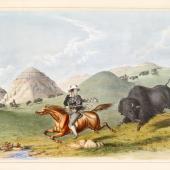
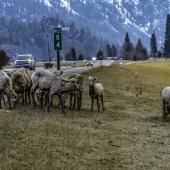

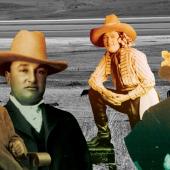
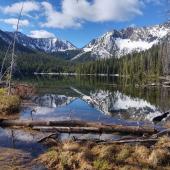
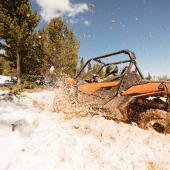
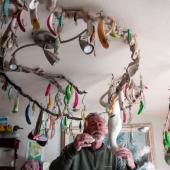
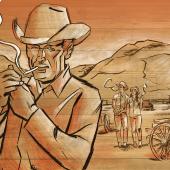

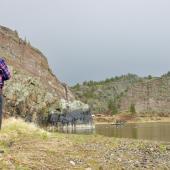
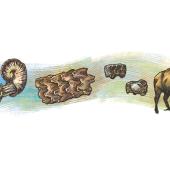

Leave a Comment Here